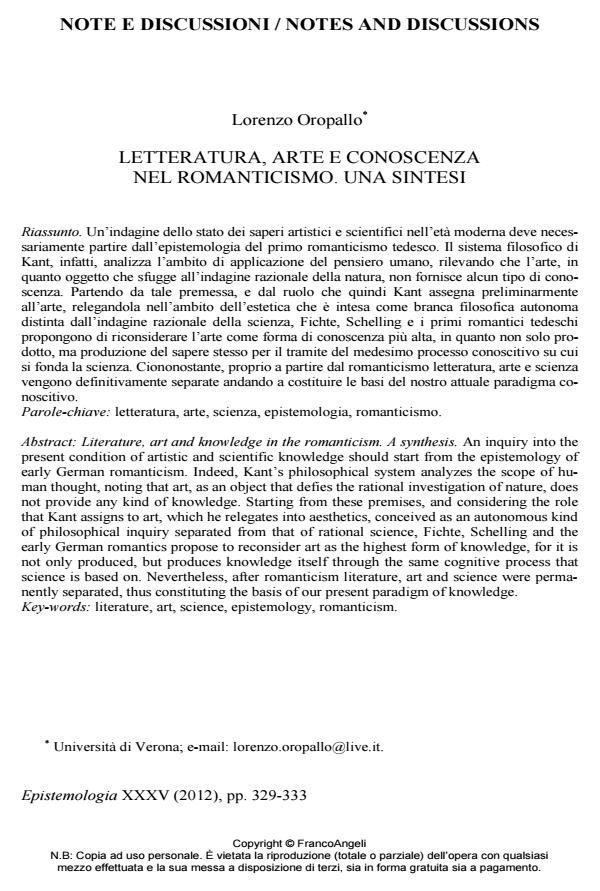Literature, art and knowledge in the romanticism. A synthesis.
Journal title EPISTEMOLOGIA
Author/s Lorenzo Oropallo
Publishing Year 2012 Issue 2012/2 Language Italian
Pages 5 P. 329-323 File size 544 KB
DOI 10.3280/EPIS2012-002011
DOI is like a bar code for intellectual property: to have more infomation
click here
Below, you can see the article first page
If you want to buy this article in PDF format, you can do it, following the instructions to buy download credits

FrancoAngeli is member of Publishers International Linking Association, Inc (PILA), a not-for-profit association which run the CrossRef service enabling links to and from online scholarly content.
An inquiry into the present condition of artistic and scientific knowledge should start from the epistemology of early German romanticism. Indeed, Kant’s philosophical system analyzes the scope of human thought, noting that art, as an object that defies the rational investigation of nature, does not provide any kind of knowledge. Starting from these premises, and considering the role that Kant assigns to art, which he relegates into aesthetics, conceived as an autonomous kind of philosophical inquiry separated from that of rational science, Fichte, Schelling and the early German romantics propose to reconsider art as the highest form of knowledge, for it is not only produced, but produces knowledge itself through the same cognitive process that science is based on. Nevertheless, after romanticism literature, art and science were permanently separated, thus constituting the basis of our present paradigm of knowledge.
Keywords: Literature, art, science, epistemology, romanticism.
Lorenzo Oropallo, Letteratura, arte e conoscenza nel romanticismo. una sintesi in "EPISTEMOLOGIA" 2/2012, pp 329-323, DOI: 10.3280/EPIS2012-002011